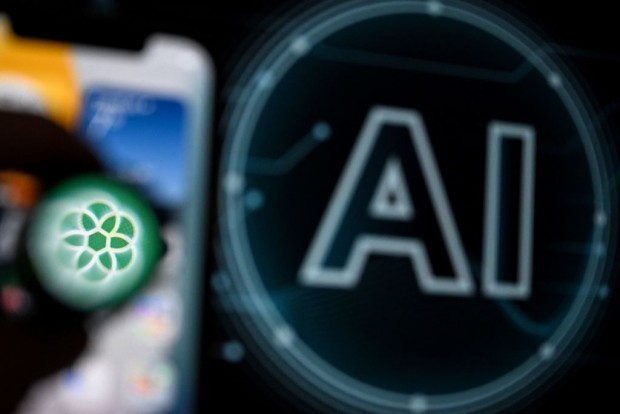OpenAI Scores Big Win in Court After Sarah Silverman's Copyright Lawsuit Is Partially Dismissed
By Jace Dela Cruz
Feb 14, 2024 04:43 AM EST
Feb 14, 2024 04:43 AM EST
A copyright lawsuit against OpenAI filed by a group of authors, including comedian Sarah Silverman, who alleged that ChatGPT is pirating their work, was partially dismissed by a California court.

A photo taken on November 23, 2023 shows the logo of the ChatGPT application developed by US artificial intelligence research organization OpenAI on a smartphone screen (L) and the letters AI on a laptop screen in Frankfurt am Main, western Germany.
According to The Verge, the lawsuit initially filed by Sarah Silverman, Christopher Golden, Richard Kadrey, Paul Tremblay, and Mona Awad, who later withdrew from the case, encompassed six claims.
These are direct copyright infringement, vicarious infringement, Digital Millennium Copyright Act (DMCA) violation, unfair competition, negligence, and unjust enrichment.
The Verge reported that OpenAI sought to dismiss all claims. However, Judge Araceli Martínez-Olguín ruled on Monday to junk five claims that accused OpenAI of copyright violations and several other infractions and upheld the unfair competition claim.
The authors had accused OpenAI of not seeking permission to use their copyrighted works to train its chatbot for profit, a claim that the judge did not move to dismiss.
READ NEXT: OpenAI Launches GPT Store, New Subscription Tier for Teams
The judge has expressed skepticism on some of the group's claims. The Verge reported that Martínez-Olguín was not convinced of the allegation that OpenAI intentionally removed copyright management information such as the title and registration number.
The judge further noted that the authors failed to prove economic injury and cite a specific output from ChatGPT that was "substantially similar, or similar at all, to their books," Forbes reported.
If there was no "substantial similarity between the outputs and the copyrighted materials," the court said the claim of "risk of future damage to intellectual property" was very speculative to consider.
To continue with the unfair competition claim upheld by the judge, the authors have until March 13 to file changes to their complaint.
READ MORE: Despite AI Hype, New Data Shows Only Few US Companies Are Actually Using It
© 2024 VCPOST, All rights reserved. Do not reproduce without permission.
Join the Conversation